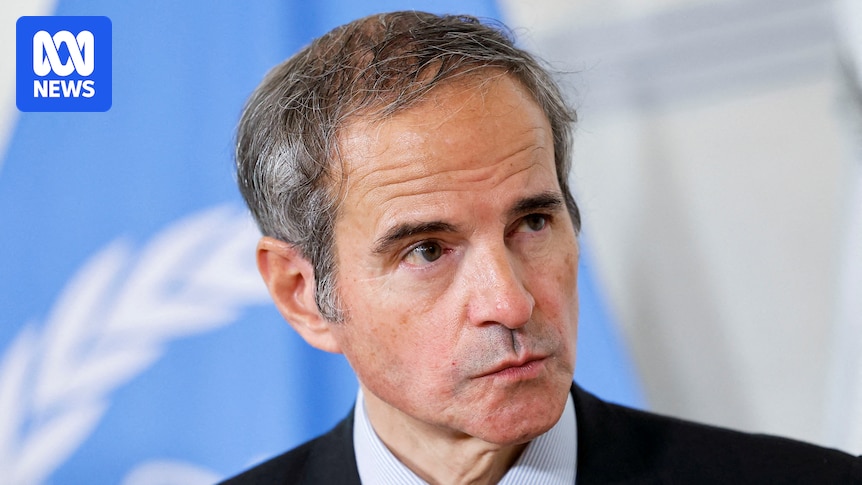
Iran could potentially resume enriching uranium within months, according to Rafael Grossi, the director-general of the International Atomic Energy Agency (IAEA). His remarks have cast further doubt on the effectiveness of recent US military strikes on Iran’s nuclear facilities, which were intended to cripple Tehran’s nuclear capabilities.
The United States has consistently asserted that the strikes on Iran’s Fordow, Natanz, and Isfahan nuclear sites had “obliterated” them. However, President Donald Trump indicated on Friday that he remains open to additional military action if Iran resumes uranium enrichment at concerning levels.
UN Watchdog’s Assessment
In an interview with CBS News, Grossi suggested that Iran’s nuclear capabilities might not have been completely eradicated by the US strikes. “The capacities they have are there,” he stated. “They can have, you know, in a matter of months, I would say, a few cascades of centrifuges spinning and producing enriched uranium, or less than that.”
“Frankly speaking, one cannot claim that everything has disappeared and there is nothing there,” Grossi added, emphasizing the resilience of Iran’s nuclear infrastructure.
The IAEA chief’s comments align with intelligence reports suggesting that Iranian officials believe the US strikes were less devastating than expected. According to The Washington Post, intercepted communications indicate that Tehran perceives the damage as manageable.
US Response and Political Ramifications
President Trump, in a Sunday interview, expressed his administration’s intent to investigate and possibly prosecute individuals responsible for leaking a preliminary classified report that questioned the success of the US strikes. “They should be prosecuted. The people who leaked it,” Trump stated on Fox News.
Meanwhile, Trump’s “Big Beautiful Bill” has advanced in the US Senate, clearing a procedural hurdle and entering a 10-hour debate phase. The bill’s progress underscores the broader geopolitical tensions surrounding the US-Iran conflict.
Background and Regional Dynamics
The US strikes followed Israel’s declaration earlier this month that it aimed to eliminate any possibility of Iran developing nuclear weapons. This declaration led to Israeli attacks on Tehran, sparking a 12-day conflict between the two nations.
Iran maintains that its nuclear program is solely for peaceful purposes. However, Grossi acknowledged that the US strikes had significantly impaired Iran’s ability to convert and enrich uranium, albeit temporarily.
“Iran is a very sophisticated country in terms of nuclear technology,” Grossi noted. “So, you cannot disinvent this. You cannot undo the knowledge that you have or the capacities that you have.”
Implications and Future Outlook
Satellite imagery released after the US strikes on the Fordow site shows craters from bombs dropped by American B-2 stealth bombers, highlighting the physical impact of the military action. Yet, the strategic implications remain uncertain.
Grossi also addressed reports of Iran relocating its stock of highly enriched uranium before the US strikes, noting that it is unclear where the material is currently located. “Some could have been destroyed as part of the attack, but some could have been moved,” he said.
On the diplomatic front, Trump dismissed Iranian Supreme Leader Ayatollah Ali Khamenei’s claims that Tehran “won the war” with Israel. “Look, you’re a man of great faith. A man who’s highly respected in his country. You have to tell the truth,” Trump remarked, challenging Khamenei’s narrative.
As tensions persist, Trump has called for Iran to open itself to international inspections to verify the status of its nuclear program. He emphasized that Iran must cooperate with the IAEA or another respected organization, potentially including US oversight.
The unfolding situation leaves the international community on edge, as the potential for renewed conflict looms. The coming months will be critical in determining whether diplomatic efforts can prevent further escalation.




